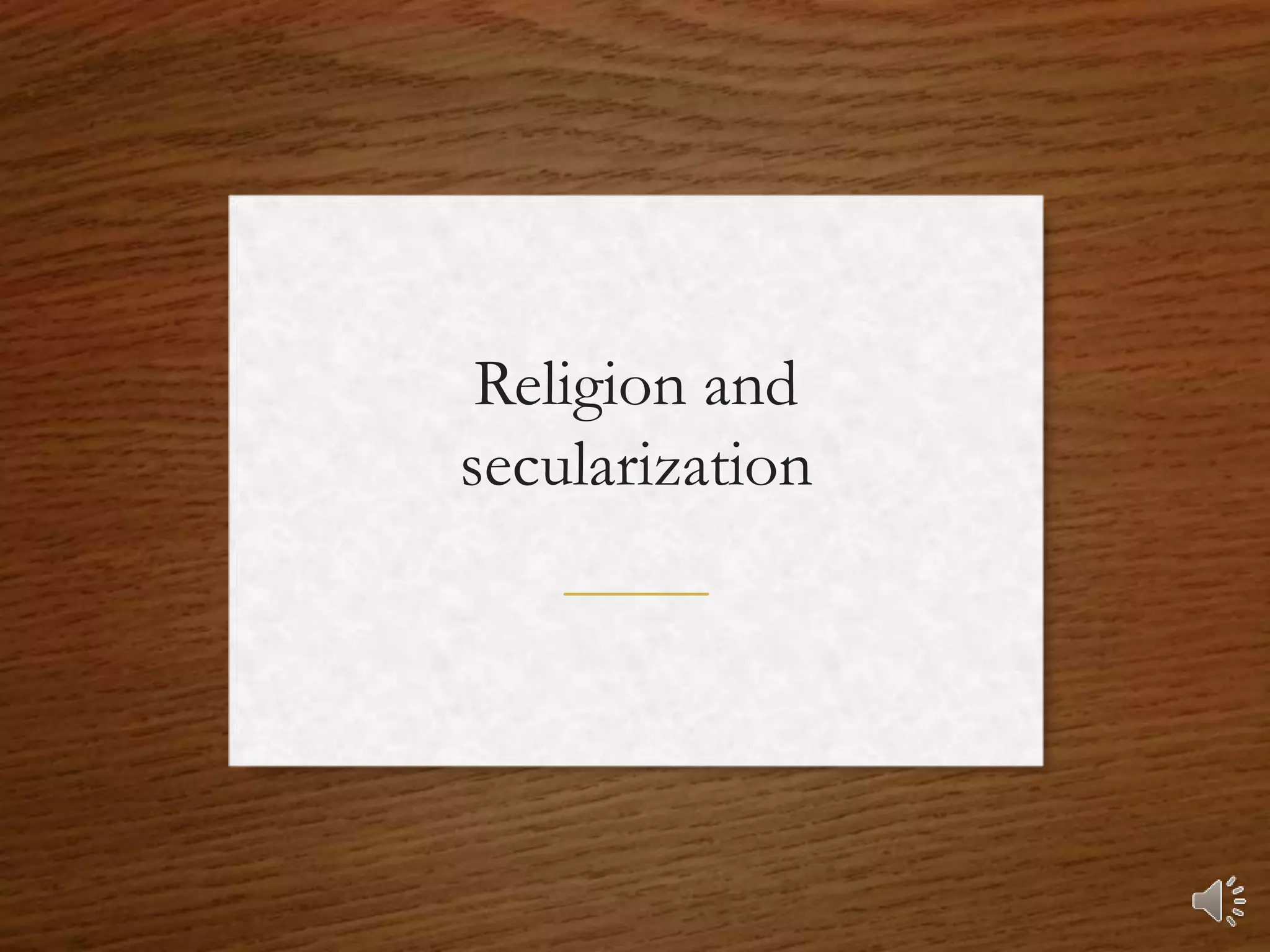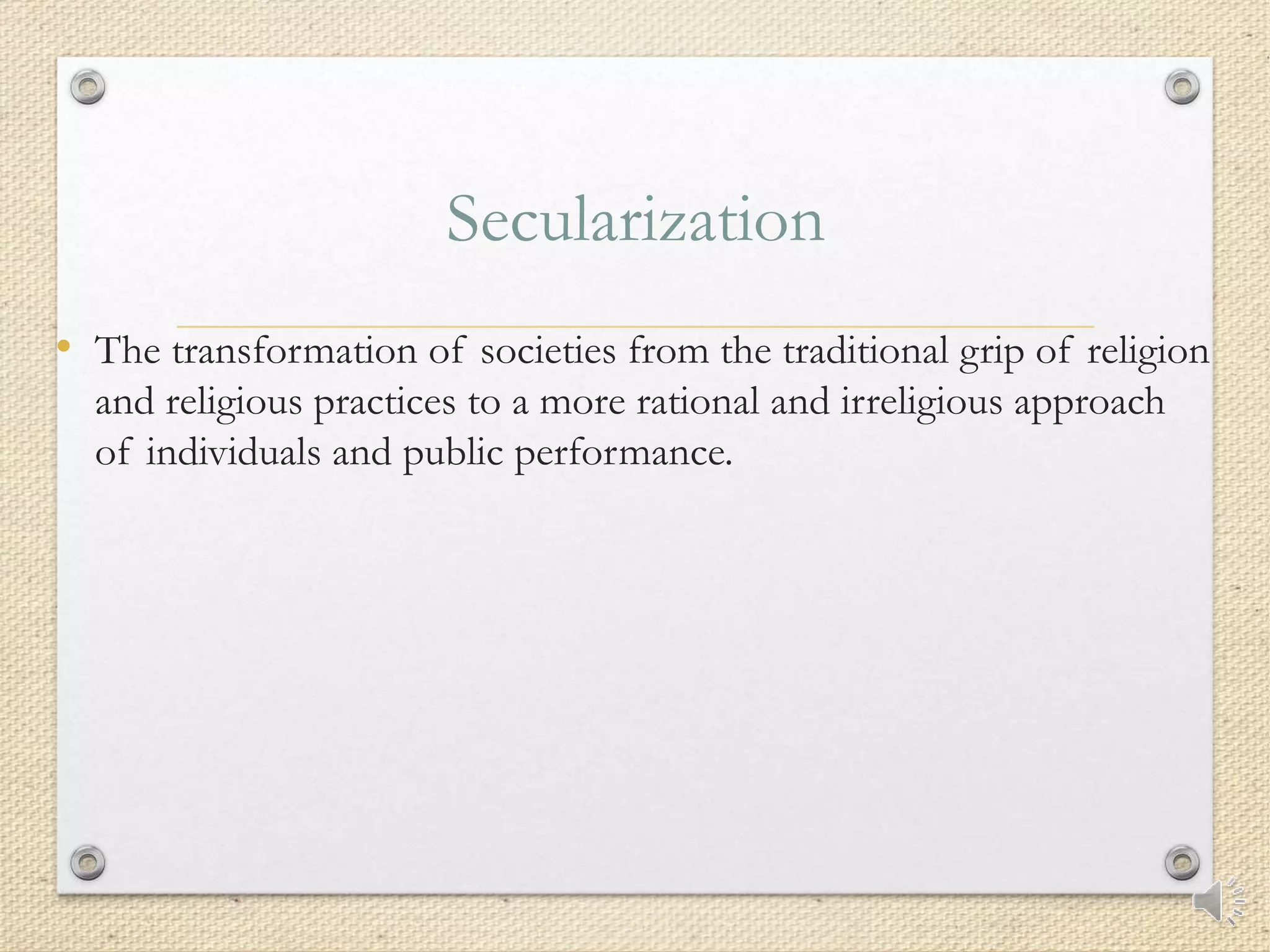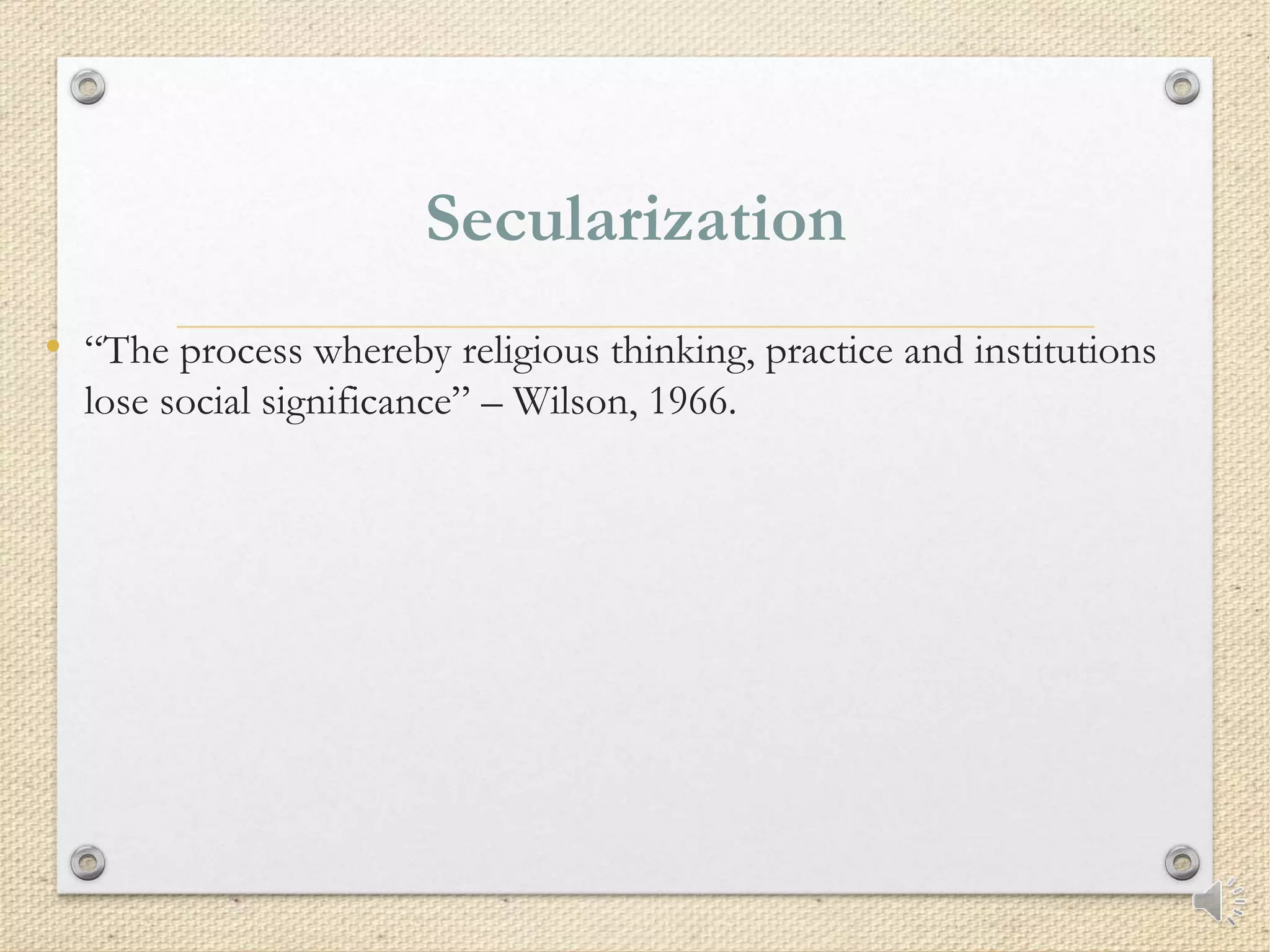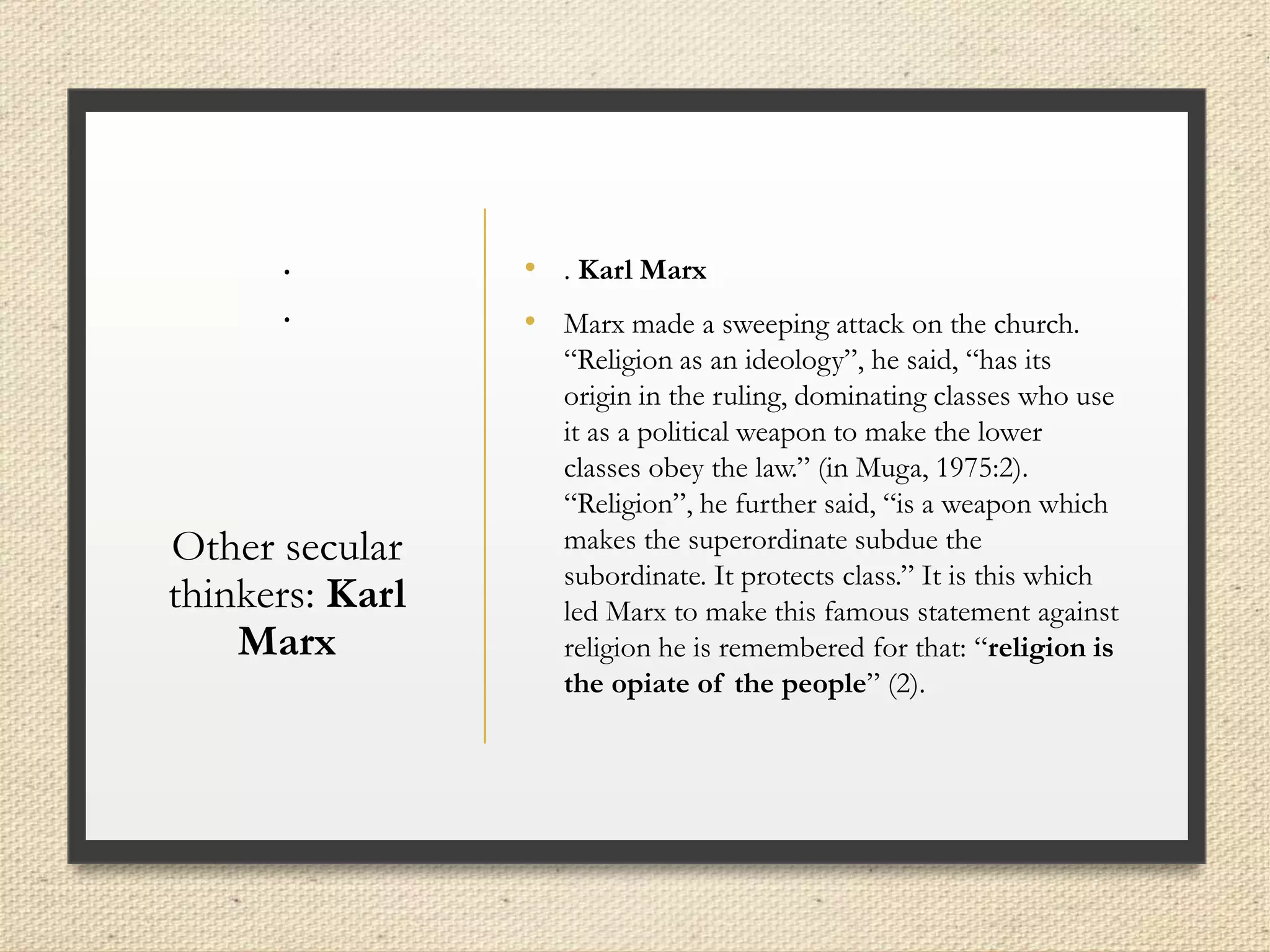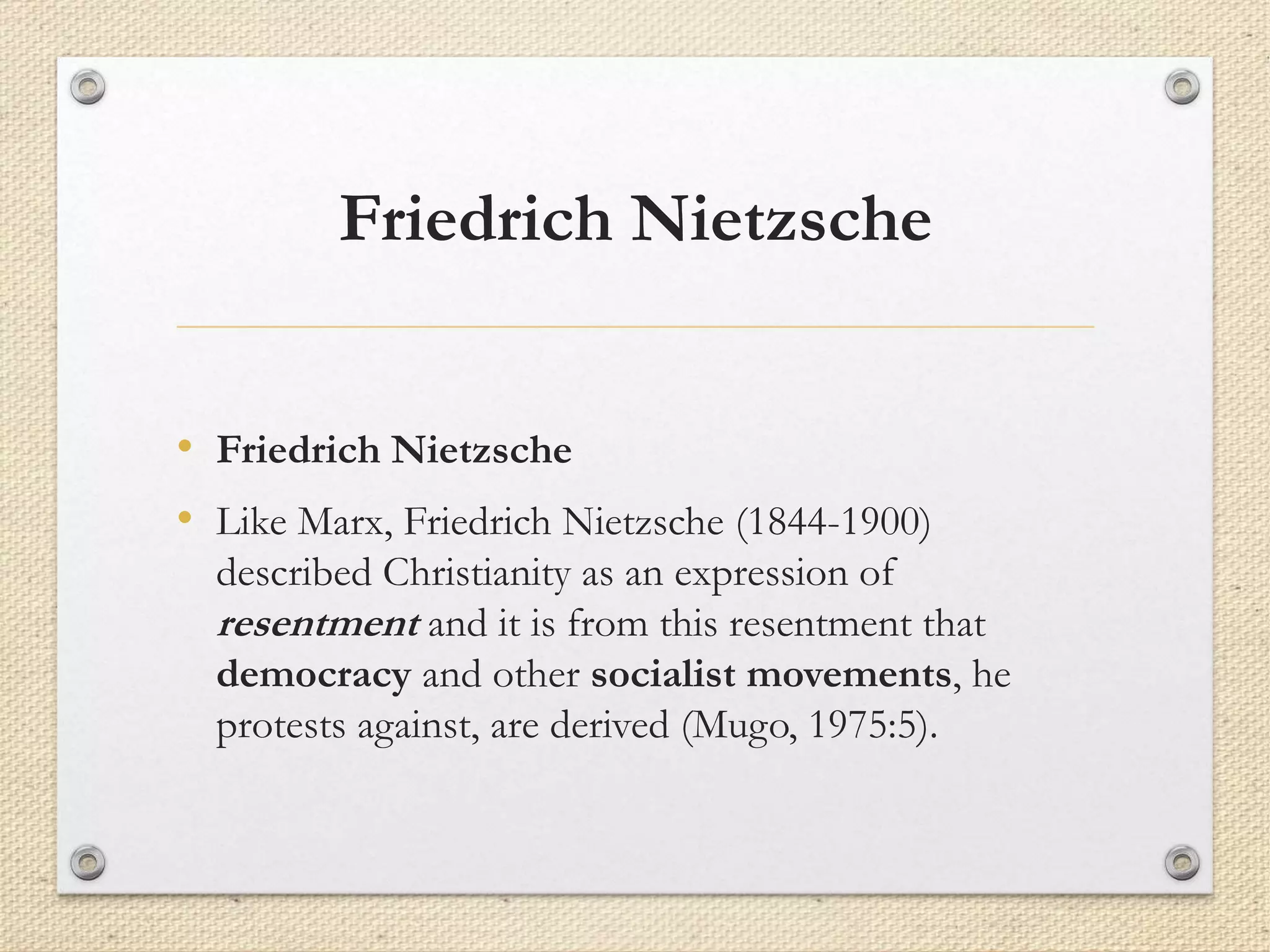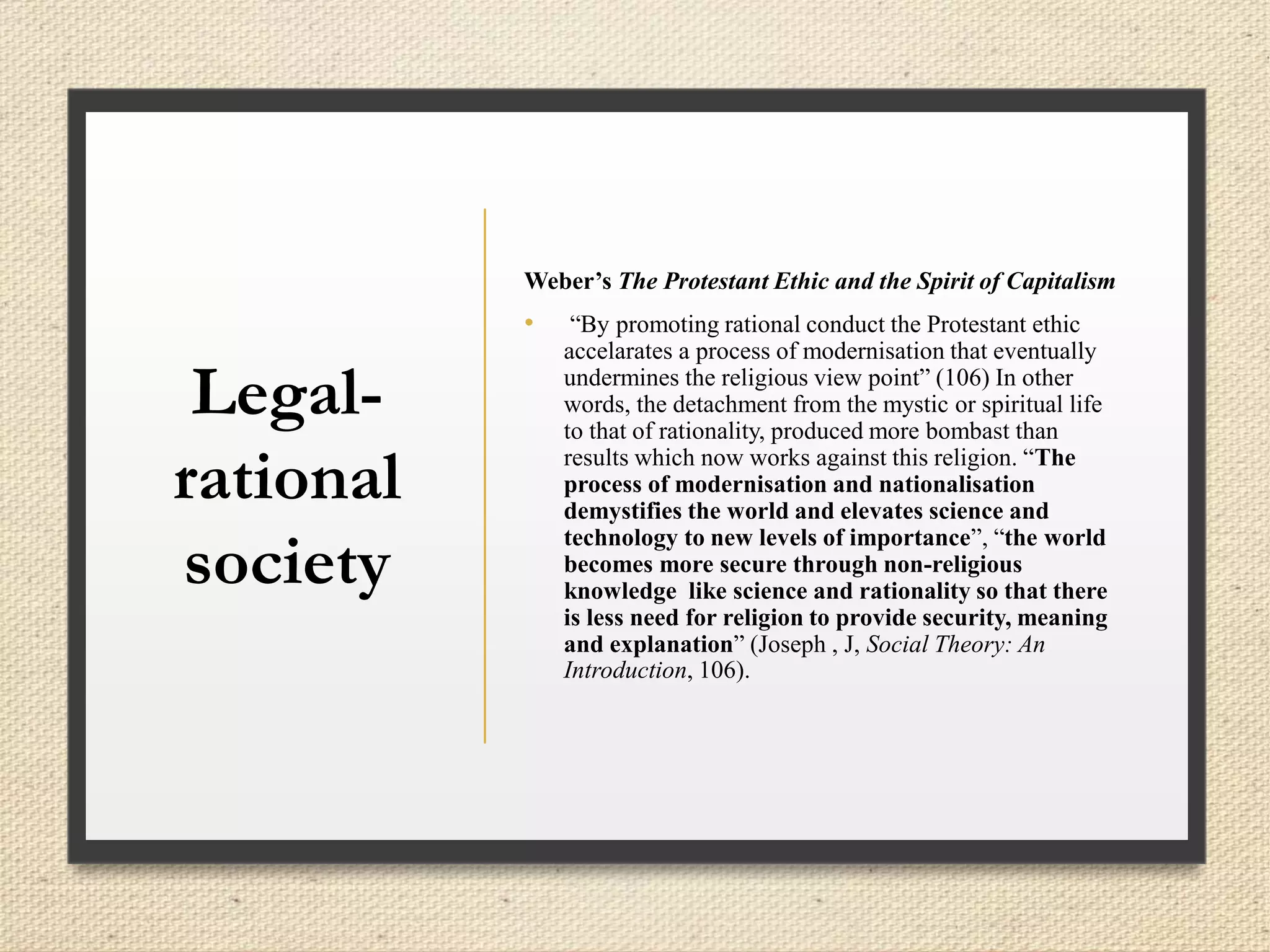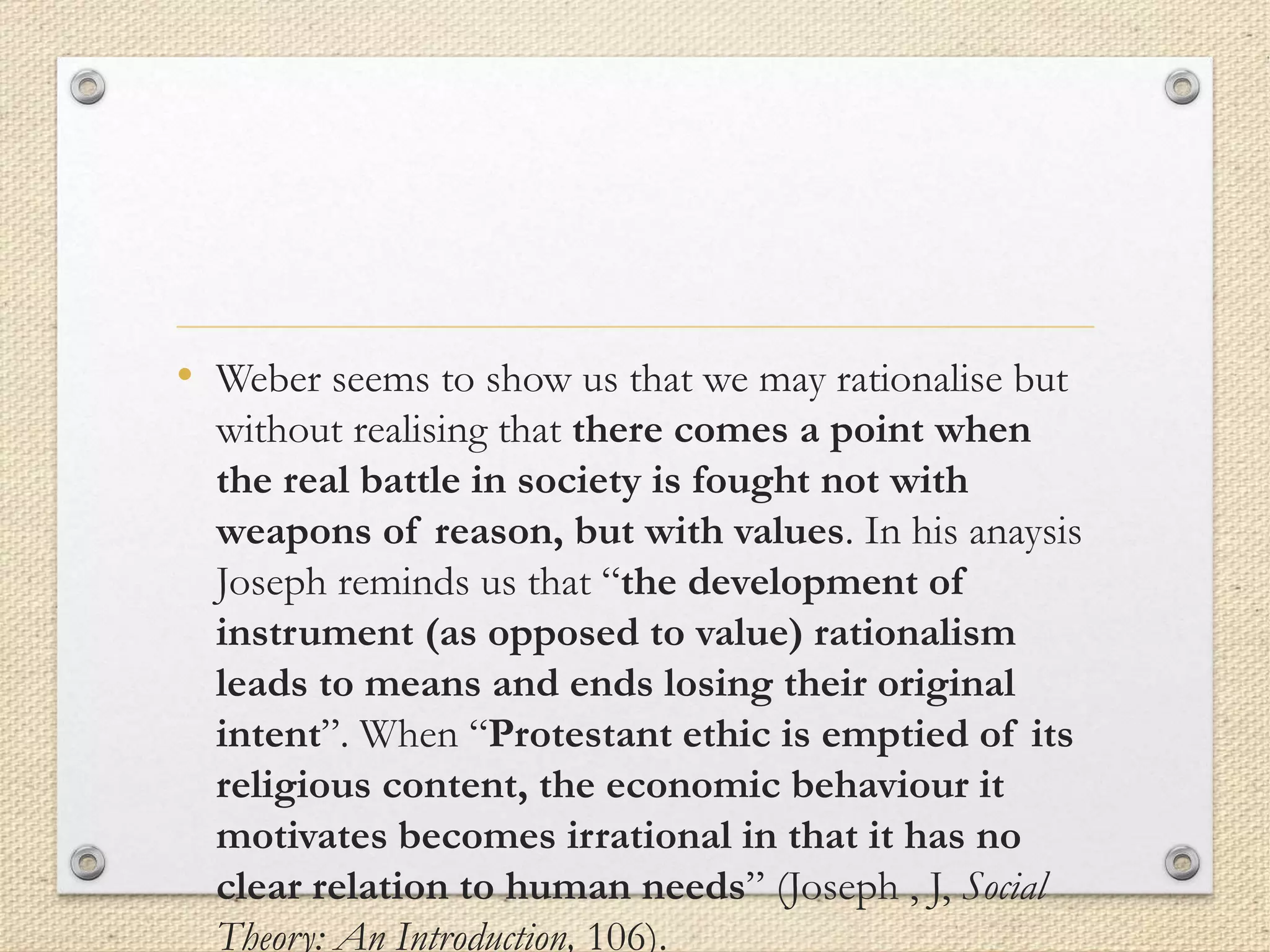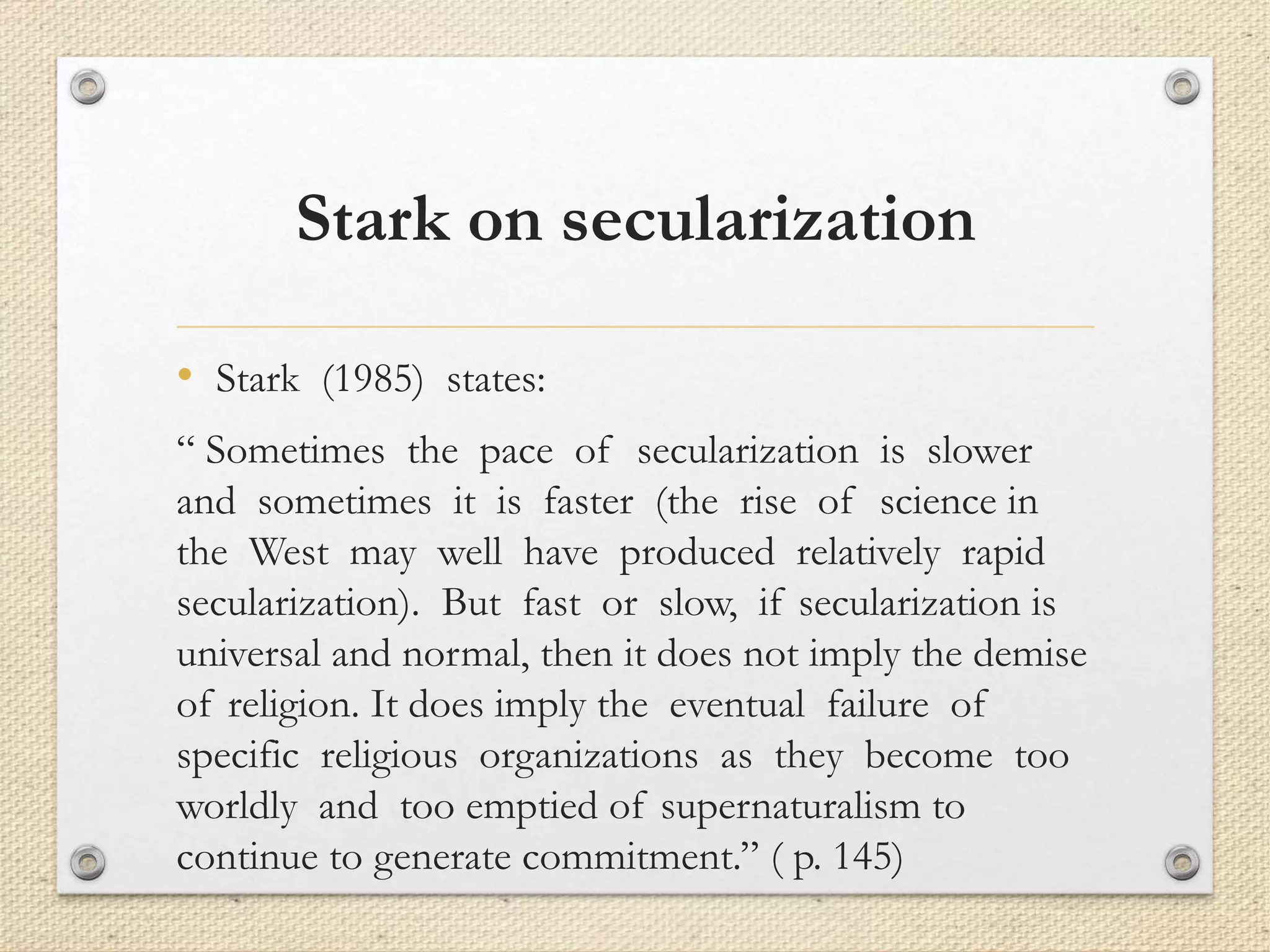1. Secularization refers to the process by which societies transition from traditional religious practices and thinking to a more rational and irreligious worldview. It involves the loss of social significance of religion and religious institutions.
2. Several factors contribute to secularization, including modernity, urbanization, industrialization, the rise of science, and an increased division of labor. As societies modernize and specialize, religious thinking declines and is replaced by rational and scientific worldviews.
3. However, secularization theories have been challenged by evidence that religion has proven remarkably resilient even in societies like the former Soviet Union that actively sought to eliminate it. Religious belief may be an innate human tendency not easily eradicated
